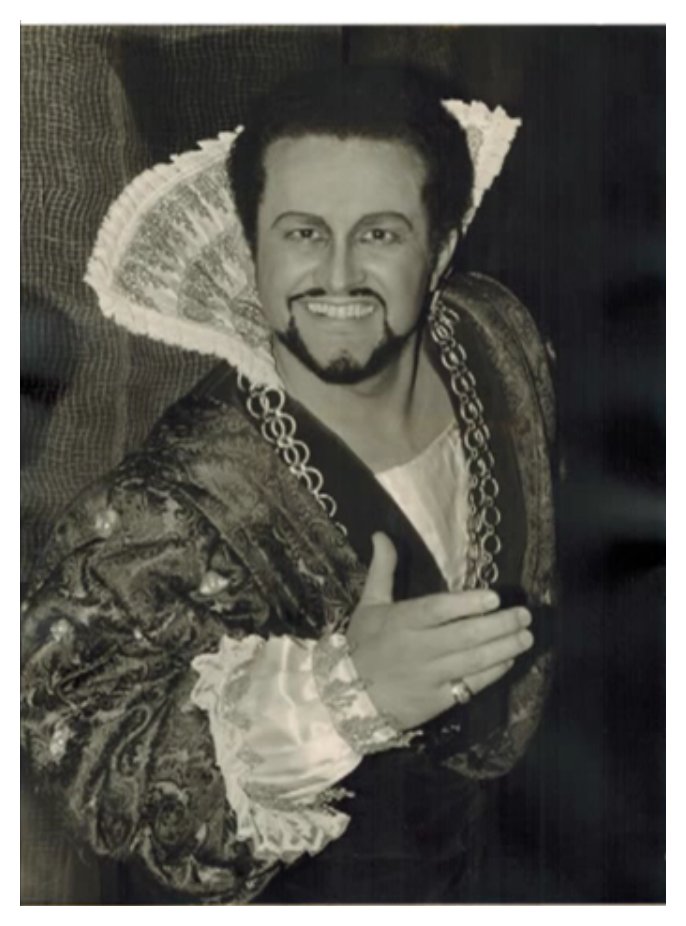

| William
Johns was born on October 2, 1936 in Tulsa, Oklahoma. He attended
Capitol Hill High School in Oklahoma City and then studied vocal performance
and music at Oklahoma City University, followed by further study in New York.
A national finalist in the 1965 Metropolitan Opera National Council Auditions,
he made his professional début in 1967 at Lake George Opera as Rodolfo
in La bohème. That same year
he went to Germany and was primarily based there throughout the 1970s, first
as a company soloist at the Bremen Opera (1967–1971), and then at the National
Theatre Mannheim (1971–1975) and the Cologne Opera (1975–1979). He sang in
five productions the Bayreuth Festival, initially in smaller roles such as
Edler in Lohengrin (1968), Knappe
in Parsifal (1969), and Augustin
Moser in Die Meistersinger von Nürnberg
(1968 and 1969), but returned there in 1987 in the leading role of Walther
von Stolzing in Die Meistersinger. The late 1970s and 1980s saw several major house and festival debuts in Europe and the United States. Johns's first appearance at Lyric Opera of Chicago was in 1976 as Hoffmann in Les Contes d'Hoffmann. He returned in five subsequent seasons [see full Chicago repertoire below], including Meistersinger the following year, which was the first time that work had been broadcast note-complete from an American opera house. He made his Metropolitan Opera debut in 1979 as Don José in Carmen and went on to appear there in 28 performances through 1993, primarily in dramatic tenor and Wagnerian roles. His last Met performance was in the title role of Siegfried. Other major house debuts during this period included the Paris Opera in 1985 as Tristan in Tristan und Isolde, La Scala in 1986 as The Emperor in the Die Frau ohne Schatten, and the Royal Opera House in 1987 as Bacchus in Ariadne auf Naxos. William
Johns at Lyric Opera of Chicago
1976 - Tales of Hoffmann (Hoffmann) with Welting, Cortez, Eda-Pierre,
Mittelmann, Andreolli,
Voketaitis,
Kihlmann; Bartoletti, Puechere,
Frigerio
1977 - Meistersinger (Walther) with Lorengar, Ridderbusch, Evans, Howell, Walker; Leitner, Merrill, O'Hearn 1980 - Lohengrin (Lohengrin) with Marton, Martin, Roar, Sotin, Monk; Janowski, Oswald (dir & des) 1981 - Ariadne auf Naxos (Tenor/Bacchus) with Meier/Rysanek, Schmidt/Minton, Welting, Negrini, Gordon; Janowski, Neugebauer, Messel 1984 - Frau ohne schatten (Emperor) with Marton, Zschau, Nimsgern, Dunn; Janowski, Corsaro, Chase 1985-86 - Otello (Otello) with Price, Milnes, Plishka, McCauley, Redmon; Bartoletti, Diaz, Pizzi, Schuler (lighting) Meistersinger (Walther) with Johnson/.Wells/Griffel, Stewart, Patrick, Kavrakos, Graham, Del Carlo; Janowski, Merrill, O'Hearn -- Names which are links refer
to my interviews elsewhere on this website. BD
|
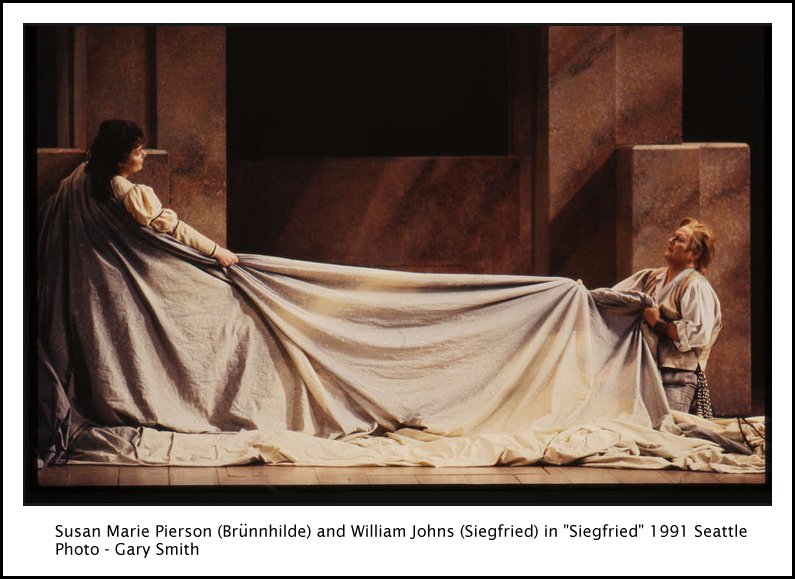
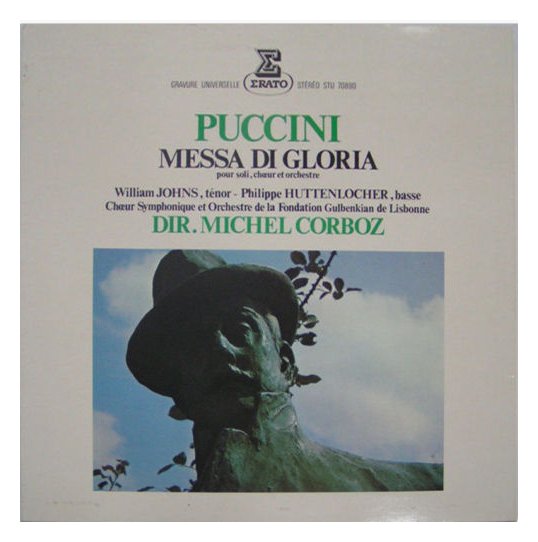 WJ: Yes, well, before about 1965 there was one standard
translation of most of the Italian operas into German, but then after that
they started making more translations, so the singers have had to learn them
since then. Sometimes in Italy they still sing Lohengrin in Italian, and it’s very beautiful
in Italian. The music lends itself incredibly well to the Italian bel-canto
school.
WJ: Yes, well, before about 1965 there was one standard
translation of most of the Italian operas into German, but then after that
they started making more translations, so the singers have had to learn them
since then. Sometimes in Italy they still sing Lohengrin in Italian, and it’s very beautiful
in Italian. The music lends itself incredibly well to the Italian bel-canto
school.|
Review/Opera; 'Ring' Moves On
to 'Siegfried'
By EDWARD ROTHSTEINPublished in The New York Times, April 12, 1993 The Metropolitan Opera's first performance of Wagner's "Siegfried" this season -- as the third entry in its Saturday matinee "Ring" cycle -- was a reminder that any mounting of this opera is a heroic effort that can seem as foolhardy as the title character's ventures. The most imposing task is in casting: to find a tenor who, over more than five hours, is able to sustain good tone, often in a high tessitura, and create nuanced interpretations against an orchestra often blaring fortissimo. This tenor must also seem hopelessly callow and blustery one hour ("a regular Li'l Abner type," Anna Russell once said) and incurably passionate the next. And at the end of his quest he must find a soprano of surpassing power to justify the first love duet in Wagner's cosmic history, leaving far behind the opera's fairy-tale dragon, shattered sword and riddle-posing god. There was a fair amount of heroism in this performance (as listeners to the radio broadcast would have heard), but there was also a fair amount of effort. Siegfried, found after much scrambling around in the minuscule heldentenor circuit, was William Johns. He has enough of the equipment and physical stamina to provide an often respectable rendering, itself no mean feat. For all the artifice of the part and the posing, there was some palpable energy in the sword-forging, and even, in blunt fashion, in the final duet. (...) |
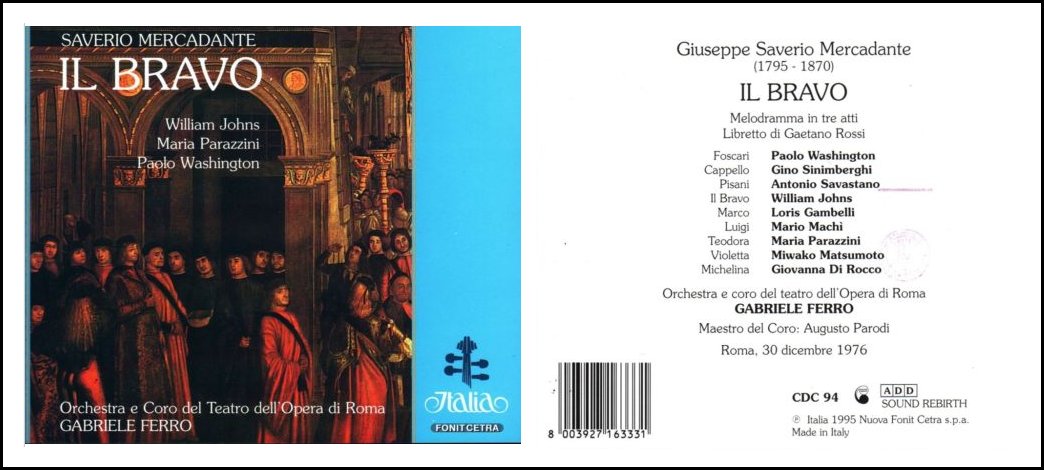
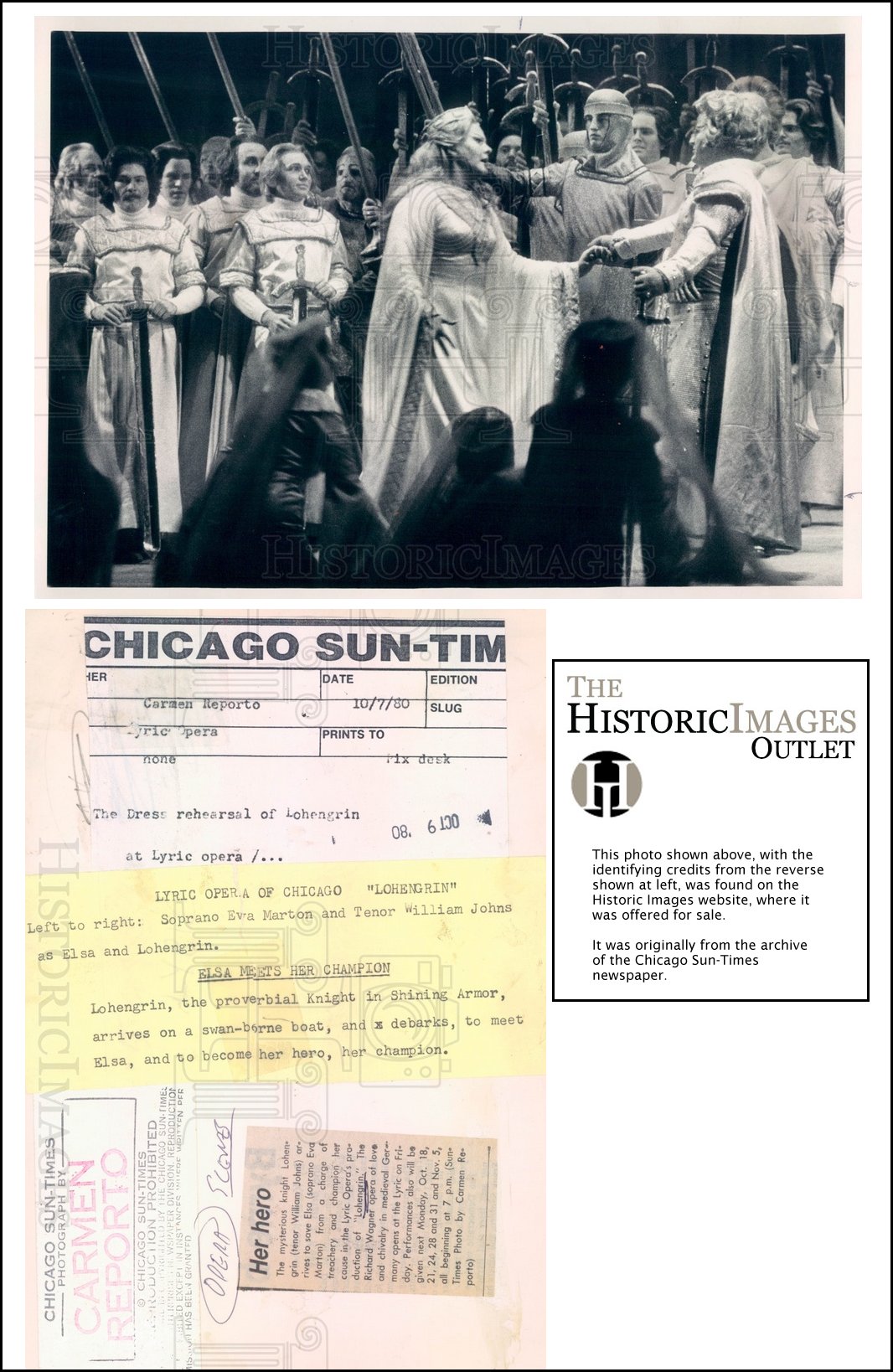
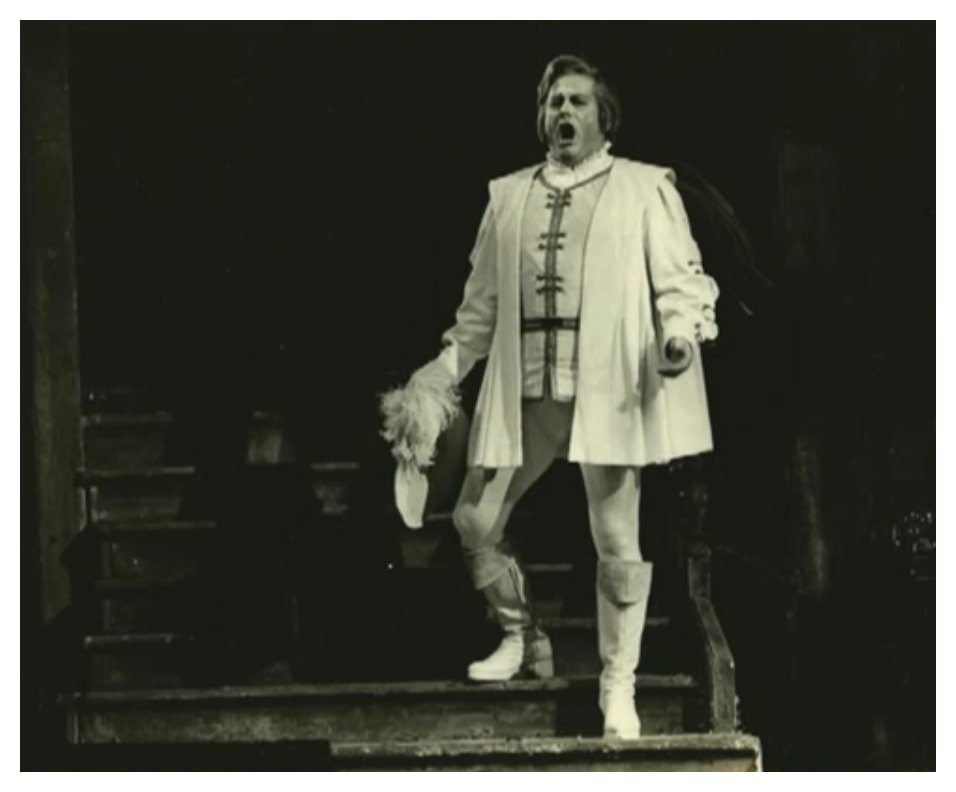
| "Rienzi'' has enough life in
it to hold an audience throughout its five long, strenuously noisy acts,
as Eve Queler and her
Opera Orchestra of New York demonstrated with their concert version Wednesday
night in Avery Fisher Hall. (...) [The performance was also presented at the Kennedy
Center in Washington, D.C.] The audience found something to cheer in William Johns's stentorian portrayal of Rienzi, the last tribune of a dying Rome. Mr. Johns, an American who has been at the Metropolitan Opera as Don Jose and Radamès, produced a Wagnerian sound that had the true heldentenor ring to it. Moreover, he threw himself into the role unstintingly, attacking every phrase as if it were his last gasp and managing to sustain the necessary intensity and volume to the end. -- From a review in The New York Times by Donal Henahan,
March 5, 1982
|
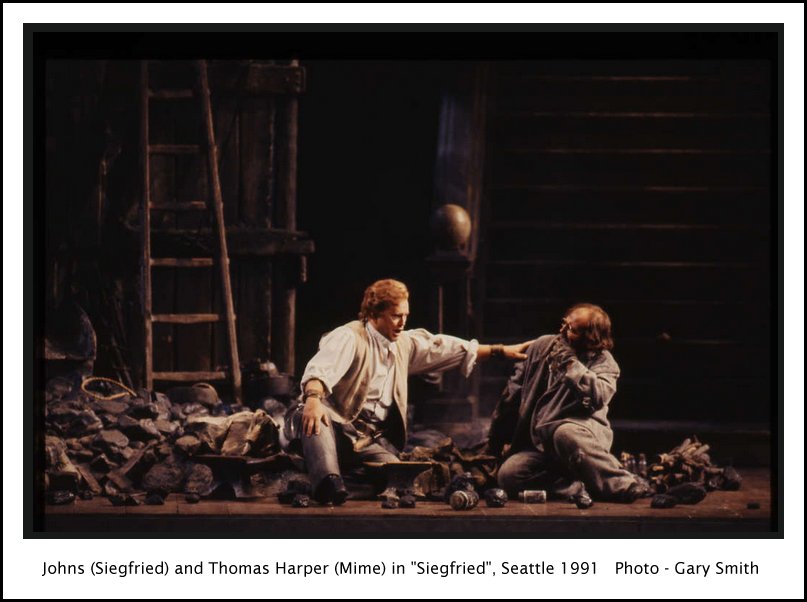
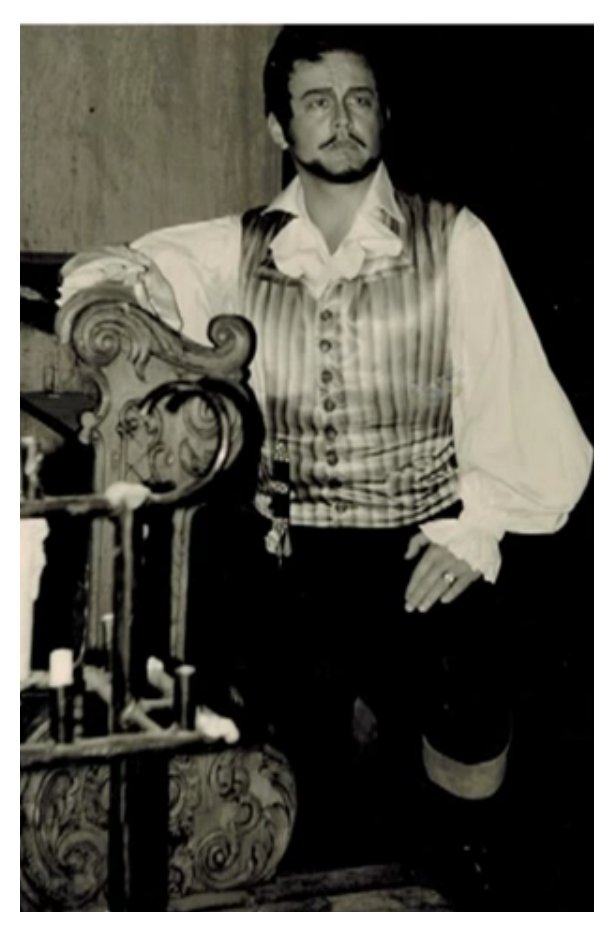 WJ: Oh, many times.
WJ: Oh, many times. 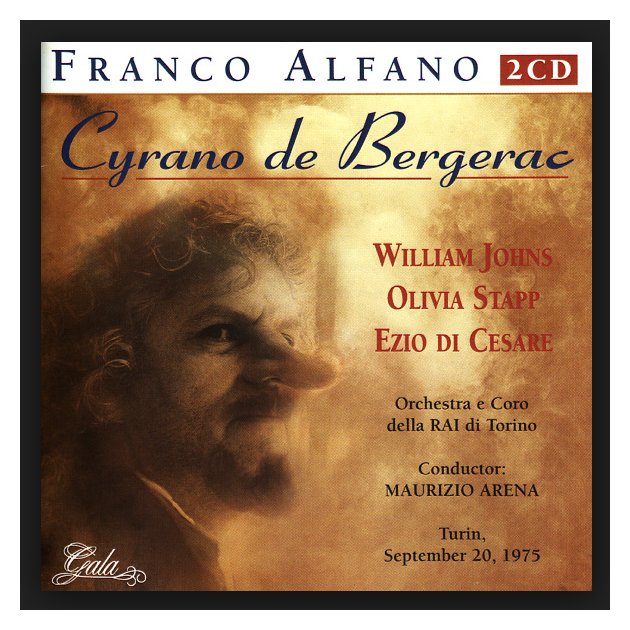 WJ: I try to be in rapport with the particular artist,
and try to put myself in his position on stage and to identify with the interpretation.
If the interpretation adheres to the score, then I’m very happy; if it departs
from that, then it upsets me.
WJ: I try to be in rapport with the particular artist,
and try to put myself in his position on stage and to identify with the interpretation.
If the interpretation adheres to the score, then I’m very happy; if it departs
from that, then it upsets me.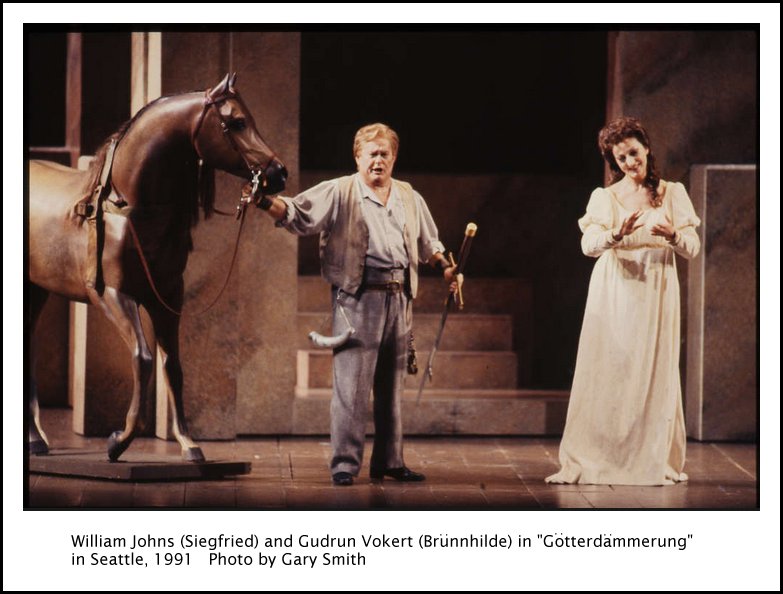
|
A little bit about the two tenors referenced earlier in the conversation . . . . . Domenico Donzelli (February 2, 1790 – March 31, 1873) can be regarded as an offshoot of the so-called Bergamo tenor school which had originated with Giacomo David and Gaetano Crivelli, and which also included Giovanni David, Andrea Nozzari, Marco Bordogni, and Giovanni Battista Rubini. 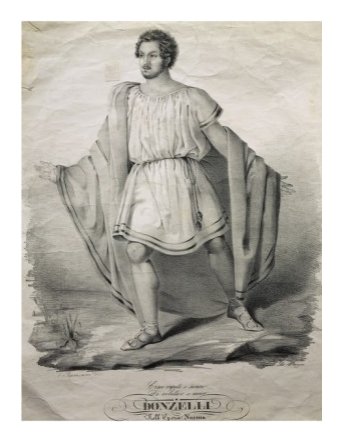 Donzelli made his debut in his home town, in 1808, as a second tenor in an
opera by Johann Simon Mayr. He soon moved to Naples and performed many roles
there, including that of Cinna in a revival of Gaspare Spontini's La Vestale. He became well known in 1815
when Rossini wrote for him the role of Torvaldo in Torvaldo e Dorliska, and when, the following
year, he made his first appearance at the Teatro alla Scala as the protagonist
of Ferdinando Paër's Achille.
Donzelli made his debut in his home town, in 1808, as a second tenor in an
opera by Johann Simon Mayr. He soon moved to Naples and performed many roles
there, including that of Cinna in a revival of Gaspare Spontini's La Vestale. He became well known in 1815
when Rossini wrote for him the role of Torvaldo in Torvaldo e Dorliska, and when, the following
year, he made his first appearance at the Teatro alla Scala as the protagonist
of Ferdinando Paër's Achille.His career made subsequent headway in major Italian theatres, in Paris, and in London, gaining fame for many of his Rossini roles, especially Otello. His performances ranged from the protagonist of Pacini's Cesare in Egitto (1821), to the role of Cavalier Belfiore in Rossini's Il viaggio a Reims (1825), from the first Pollione in Bellini's Norma (1831) to the chief part in Mercadante's Il bravo (1839). He appeared also in several premières of Donizetti operas, for instance, as Almuzir in Zoraide di Granata (1822), Ugo, conte di Parigi in the opera of that name (1832), and Don Ruiz in Maria Padilla (1841). Donzelli retired from the stage in 1841. He returned briefly in 1844/45 to sing in Naples, but his voice had irreparably deteriorated. He died in Bologna in 1873, at the age of 83. In Donzelli's artistic career, it is possible to discern three separate periods. In the first he was mainly a comic opera tenorino; the second, more substantial period (enduring until about 1822), was spent as a singer of the Rossini stamp; the third, and most significant, was spent as a "tenore di forza" (a category of dramatic tenor). Donzelli was in fact an old-fashioned baritone-type tenor in the traditional Italian manner, with a fairly narrow vocal range. In the central period of his career he could sing up to high C, but only in "falsettone", a sort of head voice, but much more forceful and expressive than the proper falsetto. Little versed in coloratura, but decidedly powerful of voice, he had a dark timbre, a firm accent, great phrasing and passionate acting. Despite criticisms of his voice's strenuousness and lack of agility, Donzelli can be held to represent the junction between the old neoclassic style of baritone-type tenor and the romantic "forceful tenor". He was the model for the real founder of the latter category of singers, Gilbert Louis Duprez, who was to become famous as the first practitioner of the high C from the chest. Stories are told that an attempt to emulate Donzelli's robust singing style might have been the cause of the demise of a young colleague of his, Americo Sbigoli, who had been engaged, together with Donzelli, in 1821, to execute the première of Donizetti's Zoraide di Granata at Rome's Teatro Argentina. In trying to match Donzelli's performance during rehearsals, Sbigoli reputedly burst a blood vessel in his throat and thereupon died. === === ===
=== === === === === === ===
=== === ===
Gilbert-Louis Duprez, to give his full name, was born in Paris December 6, 1806. He studied singing, music theory, and composition with Alexandre-Étienne Choron and made his operatic début at the Odéon in 1825 as Count Almaviva in Rossini's Il barbiere di Siviglia. He worked in that theatre without much success until 1828, when he decided to try his luck in Italy. There, the operatic scene was more active and developed. As a result, Duprez was able to immerse himself in work, beginning principally with tenore contraltino roles such as Idreno in Semiramide and Rodrigo in Otello, both by Rossini. He appeared, too, as Gualtiero in Bellini's Il pirata. The latter role proved to be his first undisputed stage success, probably because it was free of elaborate coloratura passages, which were not considered to be his strong suit as a vocalist. 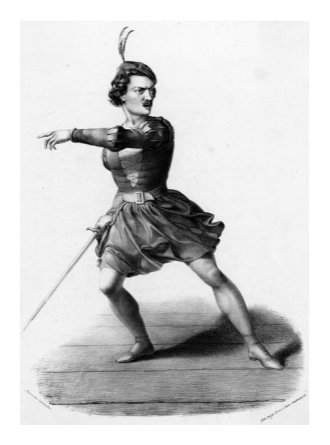 In 1831, in Lucca, Duprez took part in the premiere Italian performance of
Guglielmo Tell, singing for
the first time (in an opera theatre) a high C sung not in the so-called falsettone
register, as other tenors of that time were accustomed to do, but with a
full voice, often described as coming "from the chest". His Italian career
then proceeded on a highly successful course. It embraced, among other things,
two premieres of operas by Donizetti, namely Ugo in Parisina at Florence in 1832, and, more
significantly, Edgardo in Lucia di Lammermoor
at Naples' San Carlo in 1835.
In 1831, in Lucca, Duprez took part in the premiere Italian performance of
Guglielmo Tell, singing for
the first time (in an opera theatre) a high C sung not in the so-called falsettone
register, as other tenors of that time were accustomed to do, but with a
full voice, often described as coming "from the chest". His Italian career
then proceeded on a highly successful course. It embraced, among other things,
two premieres of operas by Donizetti, namely Ugo in Parisina at Florence in 1832, and, more
significantly, Edgardo in Lucia di Lammermoor
at Naples' San Carlo in 1835.His Italian reputation strongly established, Duprez returned to Paris in 1837 and scored an immediate success at the Opéra with his exciting new style of vocal delivery as exemplified in William Tell. Consequently, he obtained equal billing with Adolphe Nourrit as "principal tenor" of the theatre. Nourrit responded by leaving for Italy in emulation of his competitor; but unlike Duprez, he failed to master the new singing style during studies with Donizetti and committed suicide. Duprez maintained his leading position at the Opéra until 1849, singing the title role in the première of Berlioz's Benvenuto Cellini in 1838, and taking part in several further Donizetti premieres, including those of La favorite (as Fernand) and Les Martyrs (as Poliuto), both in 1840, and Dom Sébastien (in the title role), in 1843. Ironically the role of Poliuto, which Donizetti had written expressly for Nourrit in order to help him to maintain his exalted position, was to become associated in the public's mind with Duprez. After singing in London at the Drury Lane theatre in the years 1843-1844, Duprez began to cut back on his stage performances, with a notable exception being the lead role in Giuseppe Verdi's Jérusalem. His last public appearance was in 1851 in Lucia di Lammermoor at the Théâtre des Italiens. He then devoted himself to teaching, first at Paris's Conservatoire (where he had been appointed to a professorship as far back as 1842), and afterwards privately. His students included the celebrated French virtuoso bass Pol Plançon (1851–1914), whose voice is preserved on gramophone recordings made in 1902-1908. Duprez also devised a system of written exercises for singers and composed a few less than successful operettas. In his 1880 book Souvenir d'un chanteur, Duprez, a close friend of Donizetti's, related in deeply felt terms the bitter setbacks and obstructions which the Bergamo composer had suffered in the theatrical world. Duprez died at Poissy, near Paris, in 1896. One can differentiate two distinct phases in Duprez's artistic life. Initially, being equipped by nature with a clear but comparatively thin voice, he appears to have stood in the French haute-contre tradition of singing. So, when he first went to Italy, he naturally assumed equivalent tenore contraltino roles in operas written by Rossini. However, he failed to make any great impression on Italian audiences with his Rossinian endeavours, perhaps because of his deeply rooted disinclination to indulge in displays of coloratura. While in Italy, he began by modelling himself on the bel-canto tenor Rubini, whose bravura vocalism was a byword for sweetness and elegiac inflexion. Soon, however, he found a new source of inspiration in the person of Domenico Donzelli, the then greatest living "baritonal" tenor. Donzelli possessed a robust voice and a deliberately darkened timbre, coupled with firmly accented diction, immense nobility of phrasing and a vibrant, intense method of acting. The merging of Rubini and Donzelli's contrasting styles in Duprez, and the introduction of the famous high C from the chest (which soon became a standard feature of Romantic singing), gave rise to a fresh category of tenor, the tenore di forza. The dramatic tenor of the present day is a direct descendant in terms of range, tessitura and tonal thrust from this kind of mid-19th century voice first exemplified by Duprez. Duprez was a small man and, regrettably, the chest high C was an element of his vocal mechanism which soon took a toll on his physical resources. According to Berlioz, his voice sounded "hardened" as early as 1838, at the premiere of Benvenuto Cellini, and over the next 10 years, despite some isolated successes, his singing continued to deteriorate. Finally, Duprez was driven into an early retirement from the stage and he took up teaching. |
© 1980 Bruce Duffie
This conversation was recorded in Chicago on November 30, 1980.
Portions were transcribed and published in Wagner News in November, 1981 The
transcription was completed and re-edited, photos and links were added, and
it was posted on this website early in 2016.
To see a full list (with links) of interviews which have been transcribed and posted on this website, click here. To read my thoughts on editing these interviews for print, as well as a few other interesting observations, click here.
Award - winning broadcaster Bruce Duffie was with WNIB, Classical 97 in Chicago from 1975 until its final moment as a classical station in February of 2001. His interviews have also appeared in various magazines and journals since 1980, and he now continues his broadcast series on WNUR-FM, as well as on Contemporary Classical Internet Radio.
You are invited to visit his website for more information about his work, including selected transcripts of other interviews, plus a full list of his guests. He would also like to call your attention to the photos and information about his grandfather, who was a pioneer in the automotive field more than a century ago. You may also send him E-Mail with comments, questions and suggestions.